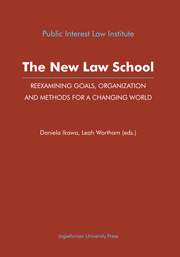Book contents
- Frontmatter
- Contents
- Preface
- Acknowledgments
- Introduction
- Part One Goals of Legal Education
- Chapter 1 The Relative Significance of Legal Tradition and Legal Education Reform
- Part Two Law School Governance
- Part Three Optimal Academic Curricula and Teaching Methods
- Part Four The Academic Career in Law
- Appendix
Chapter 1 - The Relative Significance of Legal Tradition and Legal Education Reform
from Part One - Goals of Legal Education
Published online by Cambridge University Press: 05 September 2014
- Frontmatter
- Contents
- Preface
- Acknowledgments
- Introduction
- Part One Goals of Legal Education
- Chapter 1 The Relative Significance of Legal Tradition and Legal Education Reform
- Part Two Law School Governance
- Part Three Optimal Academic Curricula and Teaching Methods
- Part Four The Academic Career in Law
- Appendix
Summary
“Abogado sin ciencia o sin conciencia merece gran sentencia i penitencia.”
Introduction
When I attended the third worldwide Global Alliance for Justice Education (GAJE) meeting in Kraków, I was surprised to be one of the few representatives from a Western European university. At first, I wondered whether what I had heard about legal education reform was incompatible with the civil law legal tradition. Then I learned about the legal education reform initiatives emerging in Eastern European law schools, and I saw the huge interest in clinical education at the GAJE conference from representatives of Poland, Russia, and former Soviet republics, as well as the Baltics, the Balkans, and even Latin America. All of these countries have statutory-law-based legal systems, but they had developed, or were developing, legal clinics in their law schools and were considering other types of legal education reform as well.
In the four years since that GAJE meeting I have been promoting and developing a legal clinic at Carlos III University in Madrid. Simultaneously, I have worked with others to start a clinical network in Spain. But, in this process, I have been nagged by the question of whether the civil law system is incompatible with this new direction in legal education – this worry being like a sword of Damocles threatening the future of my clinical work.
For this reason I started to study the origins of the global movement on legal education reform.
- Type
- Chapter
- Information
- The New Law SchoolReexamining Goals, Organization and Methods for a Changing World, pp. 23 - 32Publisher: Jagiellonian University PressPrint publication year: 2010



